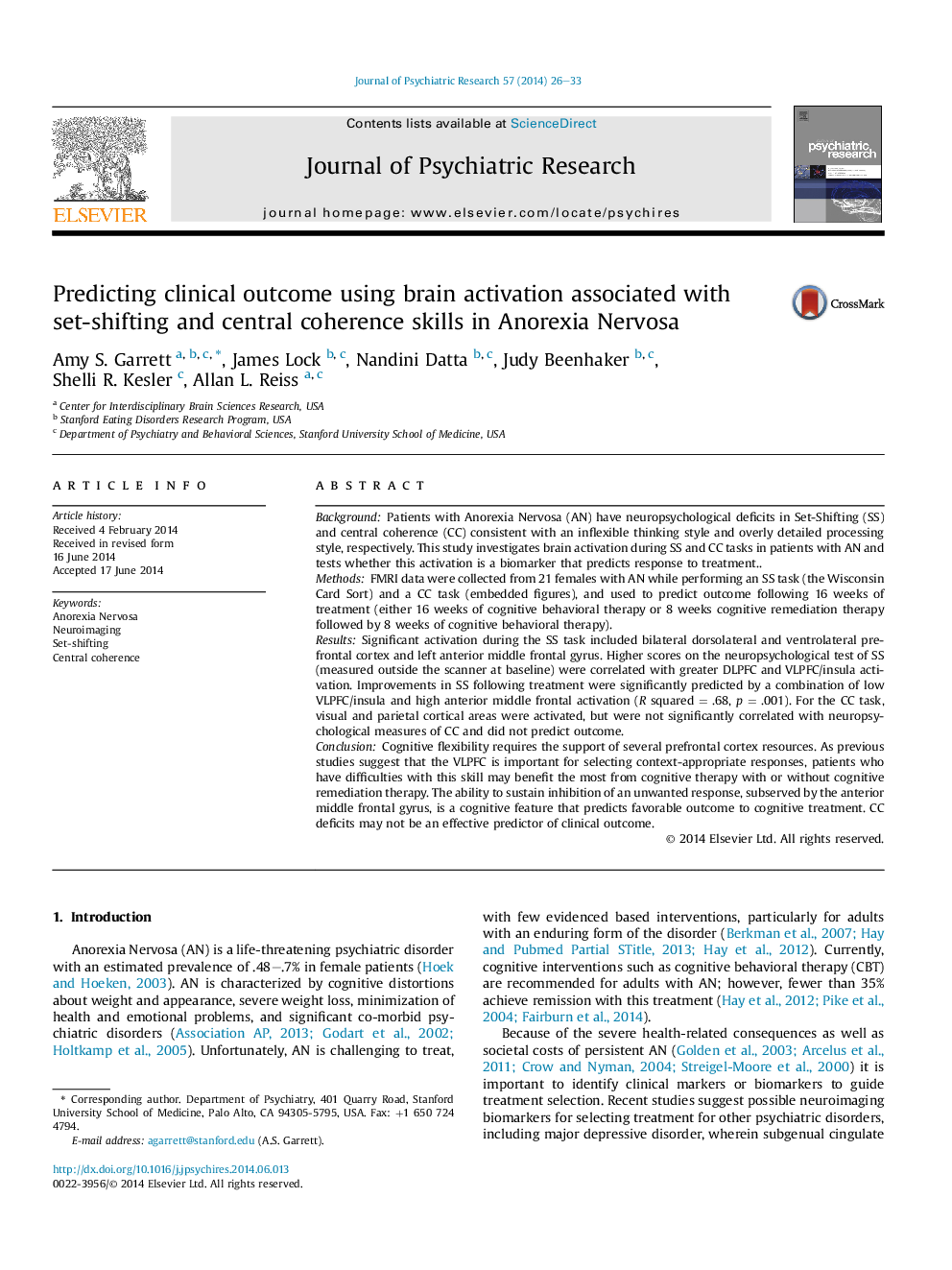| کد مقاله | کد نشریه | سال انتشار | مقاله انگلیسی | نسخه تمام متن |
|---|---|---|---|---|
| 326952 | 542674 | 2014 | 8 صفحه PDF | دانلود رایگان |

• Set-shifting ability is correlated with activation in the prefrontal cortex.
• Ventral frontal/insula activation predicts response to treatment.
• Central coherence task activation does not predict response to cognitive treatment.
BackgroundPatients with Anorexia Nervosa (AN) have neuropsychological deficits in Set-Shifting (SS) and central coherence (CC) consistent with an inflexible thinking style and overly detailed processing style, respectively. This study investigates brain activation during SS and CC tasks in patients with AN and tests whether this activation is a biomarker that predicts response to treatment.MethodsFMRI data were collected from 21 females with AN while performing an SS task (the Wisconsin Card Sort) and a CC task (embedded figures), and used to predict outcome following 16 weeks of treatment (either 16 weeks of cognitive behavioral therapy or 8 weeks cognitive remediation therapy followed by 8 weeks of cognitive behavioral therapy).ResultsSignificant activation during the SS task included bilateral dorsolateral and ventrolateral prefrontal cortex and left anterior middle frontal gyrus. Higher scores on the neuropsychological test of SS (measured outside the scanner at baseline) were correlated with greater DLPFC and VLPFC/insula activation. Improvements in SS following treatment were significantly predicted by a combination of low VLPFC/insula and high anterior middle frontal activation (R squared = .68, p = .001). For the CC task, visual and parietal cortical areas were activated, but were not significantly correlated with neuropsychological measures of CC and did not predict outcome.ConclusionCognitive flexibility requires the support of several prefrontal cortex resources. As previous studies suggest that the VLPFC is important for selecting context-appropriate responses, patients who have difficulties with this skill may benefit the most from cognitive therapy with or without cognitive remediation therapy. The ability to sustain inhibition of an unwanted response, subserved by the anterior middle frontal gyrus, is a cognitive feature that predicts favorable outcome to cognitive treatment. CC deficits may not be an effective predictor of clinical outcome.
Journal: Journal of Psychiatric Research - Volume 57, October 2014, Pages 26–33